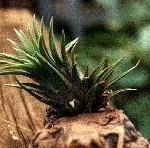Plant Guidelines
General guidelines for the importation of plants to Hawai‘i are as follows:
- All plants require inspection upon entry into the state.
- Plants must be apparently free of insects and diseases.
- Plants do not need to be bare-rooted but the growing media cannot contain soil.
- Parcels brought into the state by mail or cargo must be clearly labeled with the words “Plant Materials” or “Agricultural Commodities”.
- Shipments must be accompanied with an invoice or packing manifest listing the contents and quantities of the commodities imported.
The following items require permits, and/or certificates of origin or treatment. Some are subject to a holding period in a quarantine facility.
Information on obtaining Plant Quarantine import permits.
- Grass family (sugarcane, bamboo, and grass): Plants and parts require permit and quarantine. Seeds and dried parts of bamboo and grass are unrestricted.
- Bromeliad family (pineapple, bromeliads, and tillandsia): Plants and parts require a permit and a certificate of origin and/or treatment. Some plants require quarantine. Seeds and flasks of bromeliads (except pineapple) are unrestricted.

- Coffee: Plants, plant parts, and used coffee bags require permit and certificate of treatment. Plants and seeds for propagation also require quarantine.
- Cruciferous vegetables: The edible roots of turnip, rutabaga, radish (daikon), and horseradish require certificate of origin or certificate of treatment depending upon where they are grown.
- Orchid family: Plants and propagative parts require permit and certificate of origin. Some plants require quarantine. Seeds and deflasked tissue culture plants are unrestricted.
- Banana: Plants and parts require permit and quarantine. Fruits are unrestricted.
- Passion fruit: Plants and parts require permit and quarantine.
- Pine: Plant and parts require certificate of origin or certificate of treatment depending upon where they are grown. Cut branches are allowed during the period from October 20 to December 31.
- Coconut: Plants, seednuts, and green parts are prohibited. Nuts for consumption require permit and must be completely husked and punctured. Dried products require certificate of treatment.
- Hosts of European Corn Borer: Corn on the cob, and non-propagative parts of sorghum, broomcorn, and sudan grass require certificate of origin or certificate of treatment depending upon where they are grown. Propagative parts (except seed) for planting require permit and quarantine.
- Aster, chysanthemum, hollyhock, dahlia, and gladiolus: Plants require certificate of origin or certificate of treatment depending upon where they are grown. Seeds, tubers and corms (without stems), and cut-flowers are unrestricted.
- Palm family: Plants from the mainland U.S. are not allowed. Plants from foreign countries and propagative parts require certificate of origin.
- Hosts of the Caribbean Fruit Fly: Puerto Rico and Florida fruits and berries require certificate of origin or certificate of treatment depending upon where they are grown.
- Taro and Dasheen: Plant and propagative parts from the Solomon Islands require permit and quarantine.
